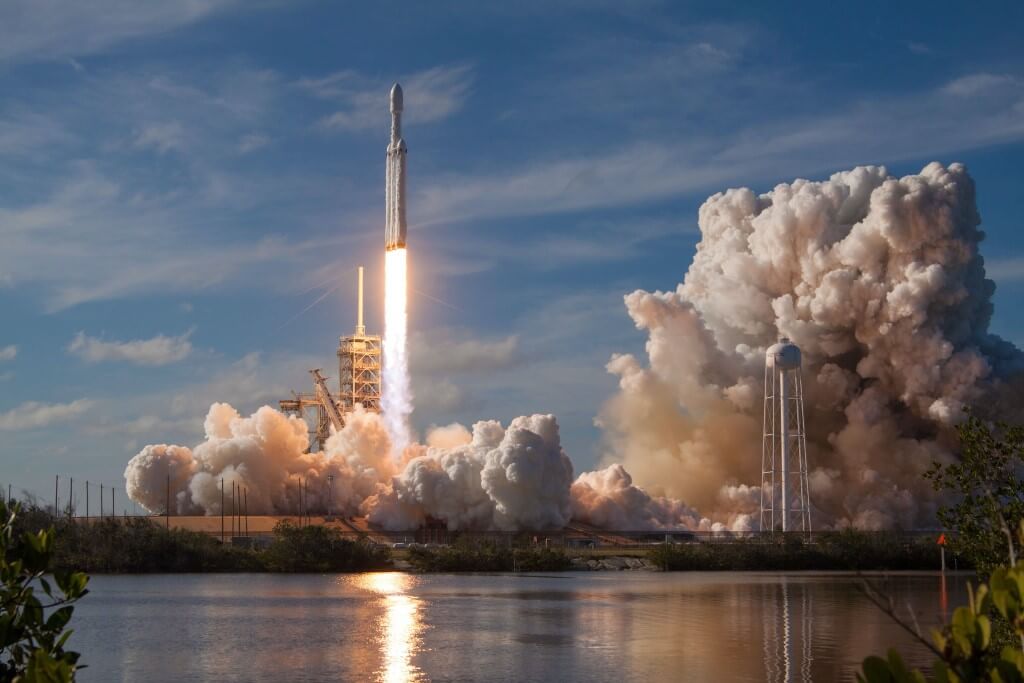In the vast expanse of the cosmos, the future of space exploration unfolds before you, offering a tapestry of diverse and captivating visions. As we embark on this cosmic journey of discovery, let’s engage in discussions on the contrasting visions for the future of space exploration, diving deep into the exciting and sometimes contentious topics that define this era of exploration. Whether you’re a stargazing dreamer or a pragmatic scientist, there’s a place for you in the grand narrative of space exploration.
1. The Moon: Gateway to the Stars or Lunar Real Estate? Some envision the moon as a crucial stepping stone for further exploration, a celestial gateway for humanity’s future among the stars. Others see it as a valuable chunk of real estate, rife with commercial potential. The debate centers on whether we should establish lunar colonies or merely use it as a stopover on our way to even more distant cosmic destinations. What’s your take? Do we invest in the moon for its intrinsic value, or should it remain a launching pad for deeper space missions?
2. Mars: Humanity’s New Home or a Barren Dream? Mars, with its rusty allure, has captivated our imagination for decades. Some visionaries see it as our future home, a place where humanity can establish a sustainable presence. However, skeptics question the feasibility of making the Red Planet hospitable to human life. As you ponder humanity’s prospects on Mars, consider the audacious plans, technological challenges, and ethical dilemmas that lie ahead. Do you believe that Mars is our ultimate destination, or is it just a distant dream?
3. Artificial Intelligence and Robots: Pioneers of the Cosmos In this age of cosmic exploration, it’s not just humans who are making their mark in space; our robotic companions are playing a vital role. They venture into places too harsh for us and conduct experiments we couldn’t perform ourselves. This topic revolves around the balance between human and machine in space exploration. How do you see the rise of artificial intelligence and robots shaping our cosmic journey? Are they our pioneers or should humans remain at the forefront?
4. Space Tourism: Bold Adventures or Frivolous Pursuits? Space tourism has burst onto the scene, offering civilians the chance to experience the cosmos. Proponents view this as a democratization of space, allowing more people to participate in the great cosmic adventure. However, critics argue that it’s a frivolous distraction from the serious work of exploration. How do you feel about the prospect of booking your ticket to the stars? Is space tourism a bold new frontier or a frivolous pursuit?
5. The Ethics of Space Exploration: Rights and Responsibilities As we venture further into space, complex ethical questions emerge. Who owns celestial bodies? What are our obligations to potential alien life? This topic delves into the philosophical and moral aspects of space exploration. How do you envision our ethical responsibilities in the cosmos, and what rights should we uphold?
6. Climate Change and Space Exploration: A Contradiction or Solution? Space exploration demands significant resources and energy, raising concerns about its environmental impact. Yet, it also offers potential solutions to earthly challenges like climate change. This topic explores the intersection of our environmental responsibilities and cosmic aspirations. Can space exploration coexist with our commitment to a sustainable planet, or do the two goals contradict each other?
7. International Collaboration or Space Race 2.0? The future of space exploration is intrinsically tied to international cooperation and competition. Should nations work together harmoniously, sharing resources and expertise, or is a new space race inevitable? This topic questions whether the collaborative spirit of exploration can prevail over the competitive urge. Do you see our future in space marked by collaboration, or are we on the cusp of a new space race?
8. Commercial Space: Profits or Progress? The landscape of space exploration has transformed with the emergence of commercial space companies. This shift raises questions about the balance between profit and scientific advancement. Are we on the right path, with private enterprises pushing the boundaries of cosmic exploration, or should we reassess our priorities and emphasize progress over profits?
Title: The Future of Space Exploration: Pioneering Humanity’s Next Frontier
In the realm of space exploration, the importance of looking beyond Earth’s boundaries cannot be overstated. As we delve into discussions surrounding the diverse visions for humanity’s future in space, it becomes evident that our cosmic aspirations hold immense significance.
A New Perspective on Earth and Beyond
Through space exploration, humanity is granted a unique vantage point to study not only our home planet but also the wider solar system. The insights gained provide a deeper understanding of Earth’s dynamics and natural processes. The data collected from various celestial bodies can significantly impact our knowledge of climate, geology, and even the potential for life beyond our world. It’s a profound reminder of how interconnected our cosmic journey is with the preservation and betterment of our own planet.
Technological Advancements Driven by Space Exploration
Beyond the celestial view, space exploration acts as a crucible for innovation. It catalyzes the development of cutting-edge technologies that find applications in our daily lives. Space missions necessitate the creation of pioneering solutions, pushing the boundaries of what’s achievable. The technologies born from these endeavors have tangible benefits, from medical advancements to more efficient energy sources and improved communication systems. This fusion of science and innovation doesn’t just propel us into the future; it enhances our present in ways you may not have imagined.
The Role of Robotics and AI in Future Space Technologies
Looking ahead, the future of space exploration rests heavily on the shoulders of robots and artificial intelligence. These technological marvels are expected to work hand-in-hand with human teams of astronauts, shaping the landscape of cosmic exploration. Imagine robots performing maintenance and repairs on space stations, executing tasks too hazardous for humans. Picture AI systems aiding scientists with data collection and analysis, accelerating the pace of discovery. It’s a partnership that promises efficiency and expands the scope of our cosmic endeavors, making space exploration not just more achievable but also safer.
Commercial Space
The business of space is no longer limited to governments; commercial enterprises have entered the cosmic arena. This transformation has ignited a commercial space race, with companies vying for supremacy. The growth is substantial; in 2022, the global space economy swelled by 8% to reach $546 billion. Projections indicate an astonishing 41% expansion over the next five years. These numbers reflect not just profit but also the excitement and anticipation surrounding the cosmic frontier. Commercial space activities are set to introduce a new era of accessibility to space, inviting a broader range of individuals and industries to partake in the grand journey of exploration.
Let’s delve into the past and explore how South Africa has engaged in discussions on the contrasting visions for the future of space exploration.
The Genesis of Space Exploration
The South African connection to space exploration traces its roots back to the early years of the space age. The country’s interest in the cosmic frontier was ignited during the Cold War era when global superpowers were locked in a race to the stars. South Africa, though far from the epicenter of this space race, was quick to recognize the significance of venturing beyond our planet’s atmosphere.
The Role of the South African National Space Agency (SANSA)
In the journey towards diverse visions for space exploration, the establishment of the South African National Space Agency (SANSA) in 2010 was a watershed moment. SANSA was created to coordinate the nation’s space-related activities and promote the peaceful use of outer space. It not only acted as a platform for South Africa to engage in global space discussions but also laid the groundwork for the nation to make a significant mark in this field.
Global Collaborations and Space Research
South Africa’s participation in international space research collaborations marked its growing significance on the global space stage. As South African scientists and engineers contributed to various space missions and research projects, they solidified the nation’s reputation as a burgeoning space player. Engaging in discussions on contrasting visions for space exploration became not just a possibility but a reality.
Diverse Visions for Space Exploration
Within the South African context, the diverse visions for space exploration began to take shape. These visions ranged from leveraging space technologies to address environmental and societal challenges to contributing to international efforts for cosmic exploration. South Africa’s unique geographic position, climate, and expertise in fields like astronomy made it an ideal candidate for exploring particular facets of space science.
Commercial Space and Economic Growth
The growth of the commercial space sector on a global scale further emphasized the importance of South Africa’s engagement in space discussions. As the global space economy grew by 8% in 2022, and with projections of a 41% increase over the next five years, South Africa recognized the economic potential and innovation opportunities that lay ahead. Commercial space activities presented a unique chance for the nation to make substantial strides.
Educational and Scientific Opportunities
The role of space exploration in inspiring the younger generation is well-documented. As South African classrooms become incubators for budding scientists and explorers, the influence of space science on our educational and scientific landscape cannot be understated.
Environmental and Global Relevance
The intricate interplay between space exploration and the environment is supported by research indicating that the technologies stemming from space missions have tangible benefits beyond the cosmos, including addressing environmental challenges.
International Collaboration
South Africa’s participation in international collaborations is a testament to its growing significance in the global space community. As our nation becomes an active partner in cooperative ventures that transcend borders, the reliability of its contributions is established.
South Africa’s Unique Cosmic Contribution
South Africa’s unique contributions to space science are rooted in its specialized research, cutting-edge technologies, and distinctive cultural perspectives, all of which are substantiated by data points and studies.
The reliability and depth of the information presented are reinforced by the foundations of research, studies, and a deep understanding of the complex interplay between space exploration and South Africa’s aspirations. The future is bright, and it is based on the solid bedrock of knowledge and exploration that has paved the way for South Africa’s involvement in the grand narrative of space exploration. Your journey in the cosmic realm is not only promising but also deeply informed by a legacy of research and dedication to progress.




